Benefits of Gifting Real Estate
When most of us think about making a gift to charities such as Habitat for Humanity Inland Valley (HFHIV), it usually involves cash or securities. There is an attractive alternative that is sometimes overlooked that allows donors to make a substantial contribution and receive significant personal benefits. How would you answer the following questions?
· Do you own real estate that you do not use?
· Is real estate a “ball-and-chain,” weighing you down with responsibilities you do not need?
· Do your real estate holdings produce any income?
· What will happen if you sell it?
· Do you have any capital gain tax exposure?
In many instances real estate can make a prime gift to HFHIV, resulting in significant tax savings and the possibility of additional income.
Types of real estate that should be considered when making a gift to charitable organizations include vacant land, commercial property, second home, even a personal residence. Real property can be given outright, bequeathed through an estate plan, sold at a discount (Bargain Sale), or placed in a trust that can generate income for the donor. Donors can give property away to a charity and choose to retain the use of it for life. The following descriptions outline these options:
a) Outright gift of property: If a donor donates un-encumbered property that has been in possession for over a year, he/she will be entitled to a charitable income tax deduction for the current full fair market value. No tax is due on the appreciated value, and the charity assumes the responsibility of ownership once the gift is received. Mortgaged property will be treated as if a sale has occurred. The donor is entitled to an income tax deduction based on the difference between the mortgage balance and the current fair market value.
b) Bequests: A will is revocable. While the donor will not receive an income tax deduction when a bequest of real estate is written into a Will or Trust, the value of the gift will not be subject to an estate tax when the bequest is received by the charity. .
c) Bargain Sale: A Bargain Sale strategy is a part gift and part sale to a
charity. When a bargain sale is made with a qualified charitable organization
such as HFHIV , the difference between the fair market value and the
value of the sale to the charity is considered a charitable contribution.
Example: Donor's real estate value is $1,000,000. The donor sells
the property to the charity for $300,000 creating a charitable gift
worth $700,000. The donor is entitled to an income tax deduction
equal to the $700,000 gift value. The capital gain tax treatment is
also favorable. The cost basis applied to the sales amount is
reduced in proportion to the percentage of the gift. In this example,
the capital gain realized because of the gift is reduced by 70%.
d) Retained life estate: This option enables a donor who plans to make a
bequest of a personal residence to make the gift during their lifetime and
retain the use of the property for life. Donors can receive a current income tax
deduction equal to the value of the charity’s remainder interest. The property will
pass outright to the charity upon death of the donor.
e) A charitable remainder trust: This arrangement has the potential to produce higher income for the donor than is currently realized by the real estate. The property is donated to a charitable remainder trust that can provide income for life. The donor will receive a current income tax deduction based upon the expected value of the gift when it is eventually distributed to the charity. Capital gains tax is by-passed when donated to a charitable remainder trust.
These options offer numerous benefits that are well worth exploring. They can relieve donors of burdens, and provide meaningful tax savings and income. Above all, they provide an opportunity to leave a legacy with HFHIV.
For more information about how you can benefit from this is opportunity, please contact Eric Bunge, Director of Special Gifts, at (951) 296-3362 ext 208, or email Eric@habitativ.org
The information provided here is for illustrative purposes only and is not intended as legal advice. For legal or tax advise Habitat for Humanity Inland Valley recommends contacting your legal or tax advisor.
